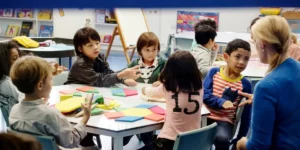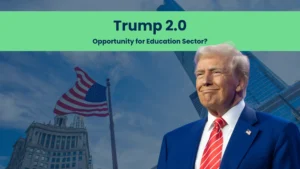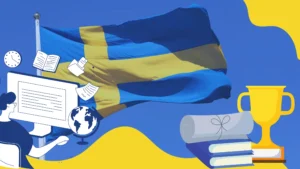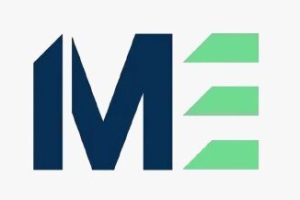In the bustling classrooms of India, where curiosity meets ambition, there is a silent struggle that often goes unnoticed. Among the millions of eager learners, there are 7.8 million children with disabilities who face daily challenges in accessing quality education. These children, with their unique abilities and untapped potential, deserve an education system that nurtures, empowers, and celebrates diversity. Yet, the reality is stark—many of these children are left behind due to inadequate resources, limited teacher training, and a lack of adaptive learning environments.
The journey of inclusion is not just about bridging gaps but about recognizing every child’s right to learn, grow, and contribute to society. As India moves towards a future where every learner matters, it’s time for global education solution providers to play a transformative role in making inclusive education a reality.
The Heart of the Matter: Understanding the Need for Inclusive Education in India

1. Millions Left Behind
According to the 2019-2020 UDISE+ report, only 61% of children with disabilities (CwDs) complete primary education, and this percentage plummets as they transition to higher grades. This steep drop reflects the lack of accessible learning environments, inclusive pedagogies, and tailored interventions that can help these children thrive.
2. Invisible Barriers to Inclusion
Despite government policies such as the Rights of Persons with Disabilities (RPWD) Act, 2016, which mandates inclusive education, 40% of Indian schools still lack basic infrastructure to support children with special needs. Moreover, less than 20% of teachers receive formal training in inclusive education, leaving them ill-equipped to address the diverse learning needs of students with disabilities.
3. The Emotional Toll on Families
For families of children with special needs, the journey is often filled with uncertainty, frustration, and heartbreak. Parents tirelessly advocate for their children’s rights while navigating a system that is often unprepared to support their unique learning paths. These families dream of a future where their children are embraced, empowered, and equipped to lead fulfilling lives—a future that demands urgent action.
Government Efforts: A Step in the Right Direction
The National Education Policy (NEP) 2020 has emphasized inclusive education by:
- Promoting Universal Access – Ensuring that children with disabilities have equitable access to quality education.
- Teacher Training and Capacity Building – Mandating inclusive teaching practices as part of professional development.
- Integration of Assistive Technologies – Encouraging the adoption of AI-powered tools and personalized learning approaches to enhance accessibility.
However, the implementation gap remains vast, and addressing this challenge requires collaboration between global education innovators and India’s education system.
Global Opportunities: Bridging the Inclusion Gap

1. Assistive Technologies: Giving Every Child a Voice
AI-powered assistive technologies, such as speech-to-text tools, adaptive learning platforms, and augmented reality (AR) solutions, can empower children with disabilities by providing personalized learning experiences. Globally, assistive technology adoption is growing at 14.2% CAGR and is expected to revolutionize special education in India.
2. Specialized Learning Content: Unlocking Potential
Developing multilingual, culturally contextualized, and interactive content can cater to diverse learning styles, ensuring that children with autism, ADHD, dyslexia, and other disabilities receive the support they need to excel.
3. Teacher Empowerment: Building Capacity for Inclusion
Training Indian educators in inclusive pedagogies and adaptive teaching methodologies can transform classrooms into safe, nurturing spaces where every child feels valued and understood. Investing in professional development for teachers can be a game-changer in creating sustainable and inclusive education systems.
A Global Call to Action: Why International Providers Must Step In
India’s vast education landscape presents an unparalleled opportunity for global education solution providers to:
- Catalyze Inclusion Through Innovation – Develop and implement scalable solutions that bridge the learning gap for children with disabilities.
- Shape the Future of Inclusive Learning – Introduce cutting-edge assistive technologies and adaptive learning models that redefine inclusion in Indian classrooms.
- Empower Educators and Communities – Build capacity through specialized training programs that equip teachers and caregivers with the skills to nurture diverse learners.
By investing in India’s special education ecosystem, global solution providers can impact millions of lives while pioneering inclusive education models that can be replicated worldwide.
The Emotional Imperative: Why This Matters
When a child with autism learns to express their thoughts through a communication device, or when a child with dyslexia discovers the joy of reading through adaptive learning content, the impact goes beyond academic success. It transforms families, inspires communities, and redefines the narrative of inclusion.
Every child has the right to dream, to learn, and to thrive. And for millions of children in India, that dream can become a reality only when global stakeholders come together to make inclusive education a priority.
The Future of Inclusion: A Shared Responsibility

Imagine a future where Indian classrooms celebrate diversity, where children with disabilities receive the support they need, and where every child feels valued. This future is possible—but it requires collective action, compassion, and unwavering commitment from education providers, policymakers, and global innovators.
Are you ready to be a part of this transformative journey?
By partnering with India Market Entry, global education solution providers can lead the way in shaping a world where inclusion is not just a policy but a reality that touches every child’s life.
References:
- UNICEF India: https://www.unicef.org/india
- Ministry of Education, India: https://www.education.gov.in
- UNESCO India: https://en.unesco.org/countries/india
- Grand View Research: https://www.grandviewresearch.com





